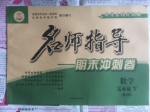题目内容
TOKYO -- The number of domestic infections cases of influenza A/H1N1 in Japan hits 42 on Sunday after a total of 34 people in Osaka and Hyogo counties were confirmed to have been infected, local media reported.
The total number of the infection in the country now stands at 46, including the first four cases contracted abroad.
The country is now facing the risk of grass-root outbreak which could lead the WHO to raise its new flu pandemic alert(传染病预警)to the highest level of 6 from the current 5, experts has warned.
The 34 newly confirmed domestic cases, 11 in Osaka and 23 in Hyogo, included high school students, college students and teachers, the health ministry and local governments said Sunday.
Japan on Saturday confirmed the first eight cases of domestic infection on students of a Kobe high school. The later confirmed cases in Osaka are said to have contacted the Kobe students in a volleyball match. Osaka and Hyogo are neighboring in the Kansai region.
All of the 42 people had no record of overseas travel.
Meanwhile, a total of 143 students at the Kansai Okura Senior High School where many infections in Osaka were found, have shown symptoms of influenza since around Monday, according to local media reports.
The privately run school said it will be closed from Monday through Saturday.
More than 1,000 educational facilities -- kindergartens, and elementary, junior and senior high schools -- in Osaka and Hyogo counties have decided to suspend classes for certain periods following the confirmation of new flu infections in the counties, Kyodo News reported.
The two counties have requested private schools to follow suit.
Osaka Governor Toru Hashimoto held a meeting of a new flu task force on Sunday and decided to ask facilities such as movie theaters to suspend operations to prevent the spread of the flu.
TV clips showed people in Kansai region started to wear masks in public spaces and rushed to drug stores for buying medicines.
The Japanese government on Saturday shifted the stage of its new-flu action program from “a period of overseas outbreak” to “a period of domestic outbreak” and called for companies and schools in the areas concerned to allow individuals to avoid commuting(出行) during rush hours.
The Kyodo News quoted Masato Tashiro, a member of the World Health Organization's emergency committee, as saying that several hundred people in Japan already may have been infected with the new flu.
- 1.
According to the passage, the total number of the A/H1N1 infection in Japan now is __________.
- A.42
- B.34
- C.46
- D.143
- A.
- 2.
The reasons for the happening of the later confirmed cases in Osaka are the following Except __________.
- A.143 students at the Kansai Okura Senior High School have shown symptoms of influenza.
- B.Some students in a Kobe High school got infected.
- C.Osaka and Hyogo are next to each other in the Kansai region.
- D.The later infected people contacted the Kobe students in a volleyball match.
- A.
- 3.
What is the implied meaning of what Masato Tashiro said in the last paragraph?
- A.The real situation about the new flu in Japan may be worse than it has been reported.
- B.Several hundred people have been infected but they don’t know it.
- C.The WHO has to raise its new flu pandemic alert to the highest level.
- D.The WHO’s emergency committee are trying to confirm the number of infection in Japan.
- A.
- 4.
Which of the following is one of the measures already taken by the Japanese government?
- A.Raising the new flu pandemic alert to the highest level.
- B.Holding a meeting to ask some facilities in the country to stop their operations.
- C.Calling for individuals in the whole country to avoid commuting during rush hours.
- D.Changing its stage of its new-flu action program to a more serious level.
- A.
- 5.
The purpose of the passage is __________.
- A.to introduce the domestic infection cases in Japan.
- B.to draw people’s attention to the worsening situation.
- C.to give some advice on preventing the spread of the flu.
- D.to call for educational facilities in Japan to suspend classes for some time.
- A.

 名师指导期末冲刺卷系列答案
名师指导期末冲刺卷系列答案
| |||||||||||||||||||||||||||||||||||||||||||||||||||||||||||